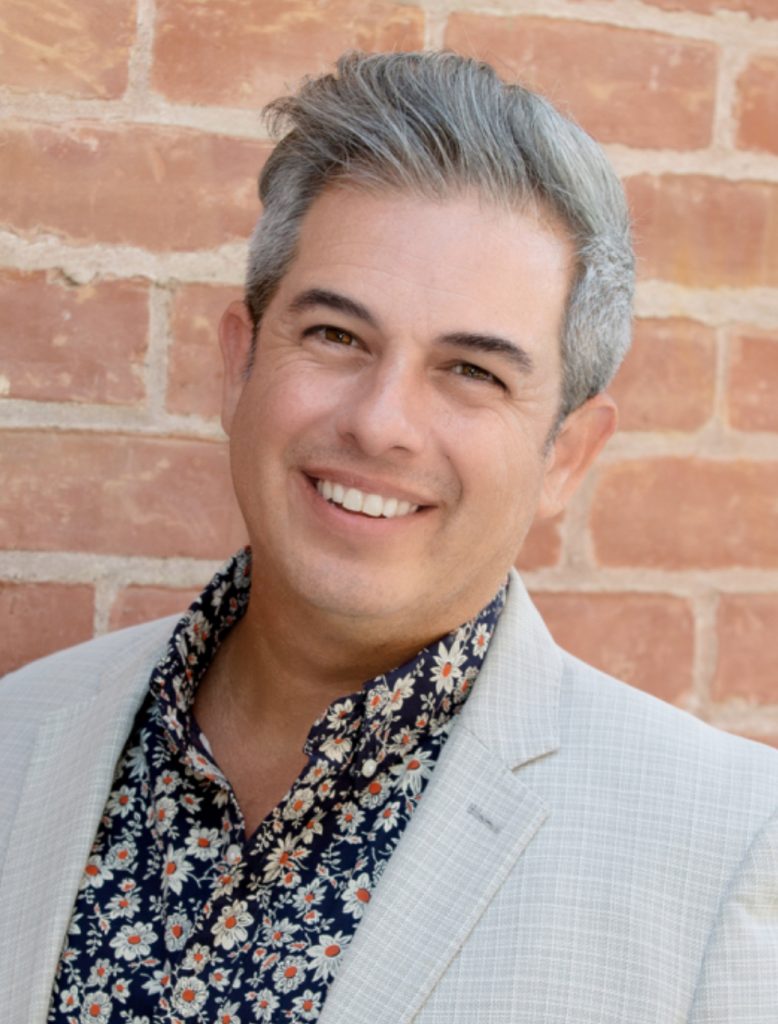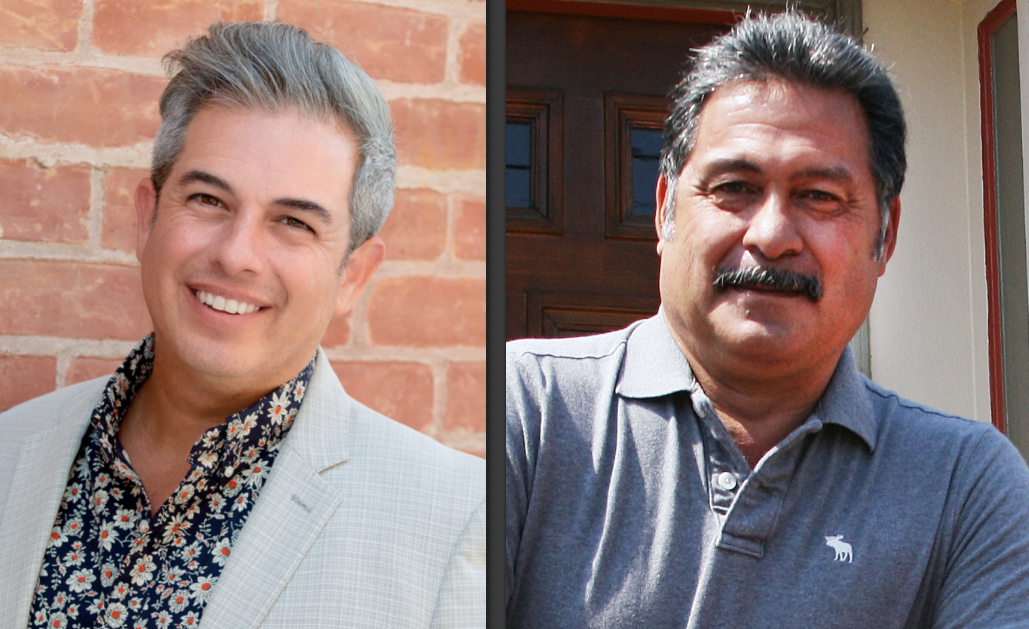Editor’s note: This is the first entry in a series of interviews with candidates running for office in the upcoming local elections. Interviewees will include candidates for the Watsonville City Council, the Pajaro Valley Unified School District Board of Trustees, the Pajaro Valley Water Management Agency and the Cabrillo Community College Governing Board. For information on all candidates and offices visit votescount.com.
For two decades Tony Gomez has volunteered for various community groups, spending time mentoring young people as a Scoutmaster, helping run Watsonville High School’s Sober Grad Night and working with the Santa Cruz County Fairgrounds Foundation.
Being elected to the Watsonville City Council and serving as Mayor would be another “extension of community service,” he said.

“If you’re fortunate enough to give back to the community, you do so,” he said. “Different people find different ways to do it, and I feel this is the time—with the trying times and hard decisions that are going to have to be made in the City in the next couple years—that somebody needs to step up to the plate.”
Gomez, 58, a lifelong Watsonville resident, first ran for City Council in 2008. He finished last in a three-person race behind Emilio Martinez and runner-up Edward Din.
Much has changed since then, he said, but in many respects 2008 mirrors 2020. The City was then in the midst of The Great Recession. Now, it is facing similar economic challenges as a result of the Covid-19 pandemic. The budget and how the city handles issues such as increasing CalPERS costs will be at the front of his mind if he does win in November.
“What is going to be the new social normal? We don’t know,” he said. “It’s going to be a challenging time. ”
He holds endorsements from council members Lowell Hurst, Ari Parker, Aurelio Gonzalez, Felipe Hernandez and Trina Coffman-Gomez, his wife. Santa Cruz County Supervisor Greg Caput has also endorsed him.
Jimmy Dutra said it took months to get accustomed to the day-to-day responsibilities of being a Watsonville City Councilmember when he was elected in District 4 in 2014. Now running in District 6, Dutra said he will hit the ground running if he is elected in November.

“During these times leadership matters,” he said. “I’m going to be able to enter into the office and become Mayor during a pandemic and be running on day one. I’m not going to need the training that somebody else will need.”
Dutra held office until 2018 when he ran unsuccessfully for County Supervisor in the 4th District against Caput, the incumbent who is currently serving his third term.
Dutra, 45, a teacher at Pajaro Middle School, said he was known as the “independent voice” of the council during his term. He will continue to be that if elected, he said, focusing his efforts on rebuilding deteriorating infrastructure and sparking an economic rebound.
“We see in today’s political climate that there’s a lot of political games going on. They’re being played all over—even locally,” he said. “However, I remain focused and determined to do what’s right.”
He has endorsements from Watsonville Mayor Rebecca J. Garcia, the Monterey Bay Central Labor Council and HonorPac, a major representative of California’s Latinx LGBTQ+ community.
ECONOMY
DUTRA: Dutra said the City has the responsibility to do everything it can to protect its various mom and pop shops. That includes funding more assistance programs for business owners, renters and landlords.
“We need to make sure that our community comes out of this pandemic with as little loss as possible,” he said.
But those programs will only do so much, he said, and long-term solutions for the predicted economic recession will have to quickly come to fruition. Innovations with land use will be key, he said. Properties such as the Kmart center on Freedom Boulevard bring infinite options for economic growth.
“I’m already looking out to properties that are going to come available,” he said. “That Kmart is going to close and we’re going to have to do something in that shopping center. We’re going to have to start working in ways that are outside of the box.”
For too long, Dutra said, Watsonville has lost its young, bright residents to neighboring cities because they cannot find a job in their field after graduating college. Dutra said he would try to bring “major” employers from various industries into town to “bring our children home.”
“I know the City is really stuck on building their revenue around cannabis…We need to be thinking bigger,” he said.
Downtown revitalization by further loosening alcohol restrictions on restaurants, breweries and wine tasting rooms could also help jump-start the economy when the pandemic begins to wane, he said. Those are also the jobs and businesses that would help lure the city’s promising young professionals back home, he said.
“We, as a city, have to come into this century,” he said.
GOMEZ: Gomez said economic change and progress is a “slow-moving animal” that requires cooperation and compromise from all. That, he said, has never been more apparent since the pandemic forced mass economic closures and put many people out of work.
It is still unknown what the final economic impact of the pandemic will be, he said, but the City does not need to wait to help local businesses until that is known. If businesses cannot welcome back customers indoors, the City needs to work with local organizations to aid businesses in other ways such as strengthening their online presence, Gomez said.
“There has to be different avenues for these merchants to expand their businesses,” he said.
Gomez said he also plans to focus on the revitalization of the downtown corridor, which for years has struggled to lure businesses and shoppers. He said any improvement to that area is going to take time, as that would require property owners to invest in and remodel their buildings—a major challenge for property owners who have been hit hard by the pandemic.
He hopes downtown can one day be an “eclectic” gathering place with wine tasting rooms, clothing stores and gift shops.
“In order to revitalize, you’ve got to give people a reason to stop,” he said. “They don’t just stop just because. It takes a different mix of economic outlets as far as what type of quality stores you have.”
HOUSING
GOMEZ: Gomez said the upcoming 20-year reassessment of Measure U, a 2002 voter-approved initiative that restricted the City’s annexation power, could have a major ripple effect on the housing market for decades.
“If you don’t have those big chunks [of land] it makes it tough to grow,” he said.
He said he does not predict the City will expand in 2022, which means Watsonville will continue to build upward instead of outward. Mixed-use developments, such as The Terrace on Main Street, will be more common in the coming years, he said.
That type of housing, he said, is not a bad thing, as the lower portion of those developments could provide jobs that are lacking in what he called a “bedroom community,” or a commuter town.
“We have to fix that,” he said.
DUTRA: Dutra said the days of building large single-family homes are “over” and that mixed-use housing such as The Terrace is the future.
When asked about traffic issues that may result from that densely-constructed housing, Dutra said those types of developments would ultimately equate to fewer cars on the road. The businesses underneath the housing, he said, could be filled with grocery stores and restaurants that would promote a more walkable and bikeable community and create stronger ties between residents and business owners.
“Adding all the housing on Main Street and maybe on the surrounding streets is going to be, I believe, a huge revitalization of downtown as well,” he said.
PUBLIC SAFETY
DUTRA: Dutra remembers walking out of school with his classmates following the beating of Rodney King in 1991. Though much as changed since that dark moment in the country’s history, we still have a long way to go, he said.
“This is still happening today,” he said. “It’s like we’re not learning.”
Dutra said the creation of the City’s Committee on Policing and Social Equity was an important step for the Watsonville community to take, but he did not want to recommend any changes or improvements to local law enforcement before that committee completes its findings.
“If changes need to be made, then we’ll make them,” he said. “But I am not supportive of defunding the police.”
GOMEZ: Watsonville has been hard-hit by the novel coronavirus, as more than half of Santa Cruz County’s cases have been identified in the city. Those threats to public safety must be addressed by better education and enforcement efforts, he said.
“We have to be better,” he said.
When asked about the City’s current police and social injustice reform efforts, Gomez said it is premature to make a judgment without knowing the results of the conversations that the Committee on Policing and Social Equity will have over the next year. He did, however, say the community has made promising strides in lowering its crime rates thanks to its police department.
Editor’s note: This story has been updated (Sept. 5, 11:30am) to clarify a statement made by Dutra about loosening alcohol restrictions in downtown Watsonville.












